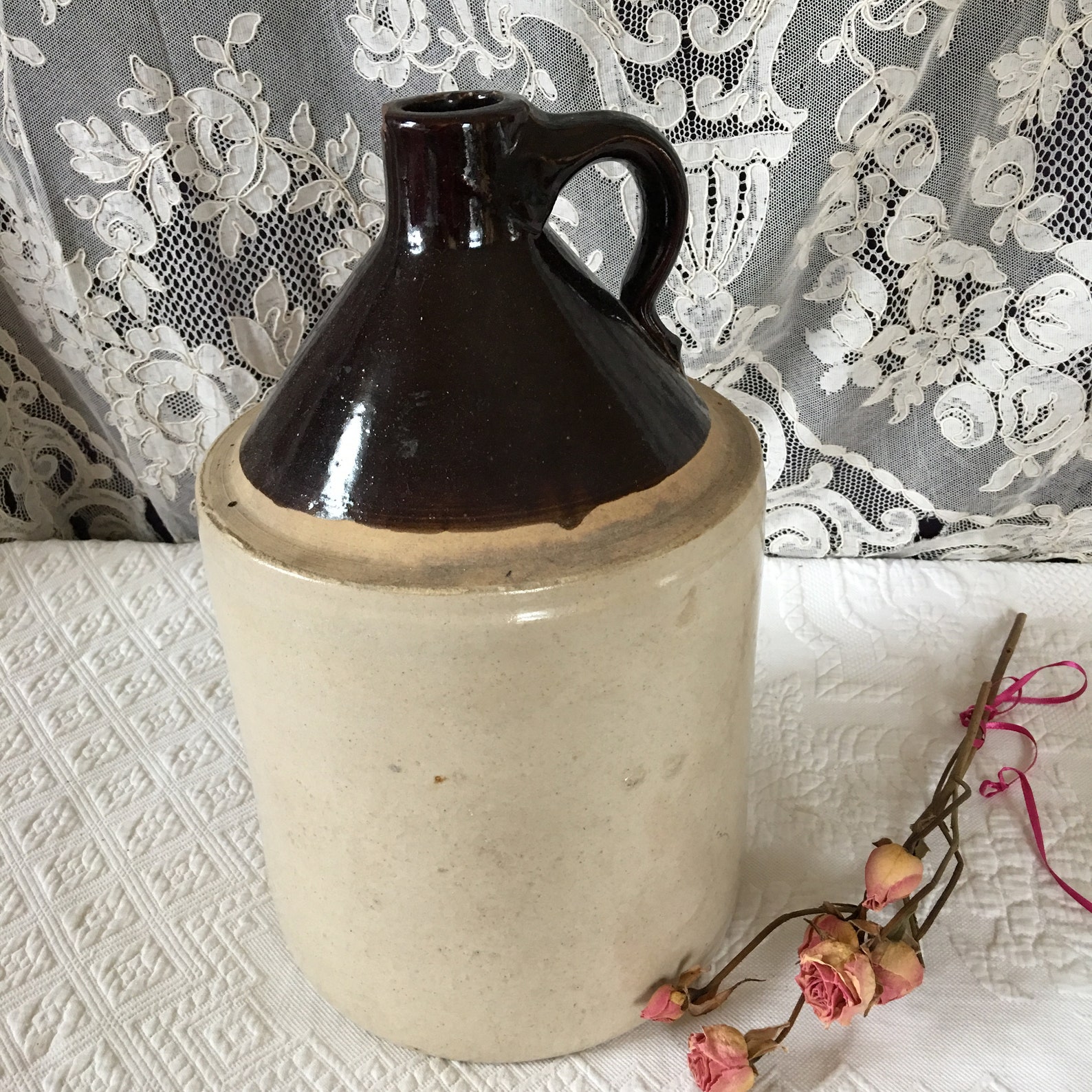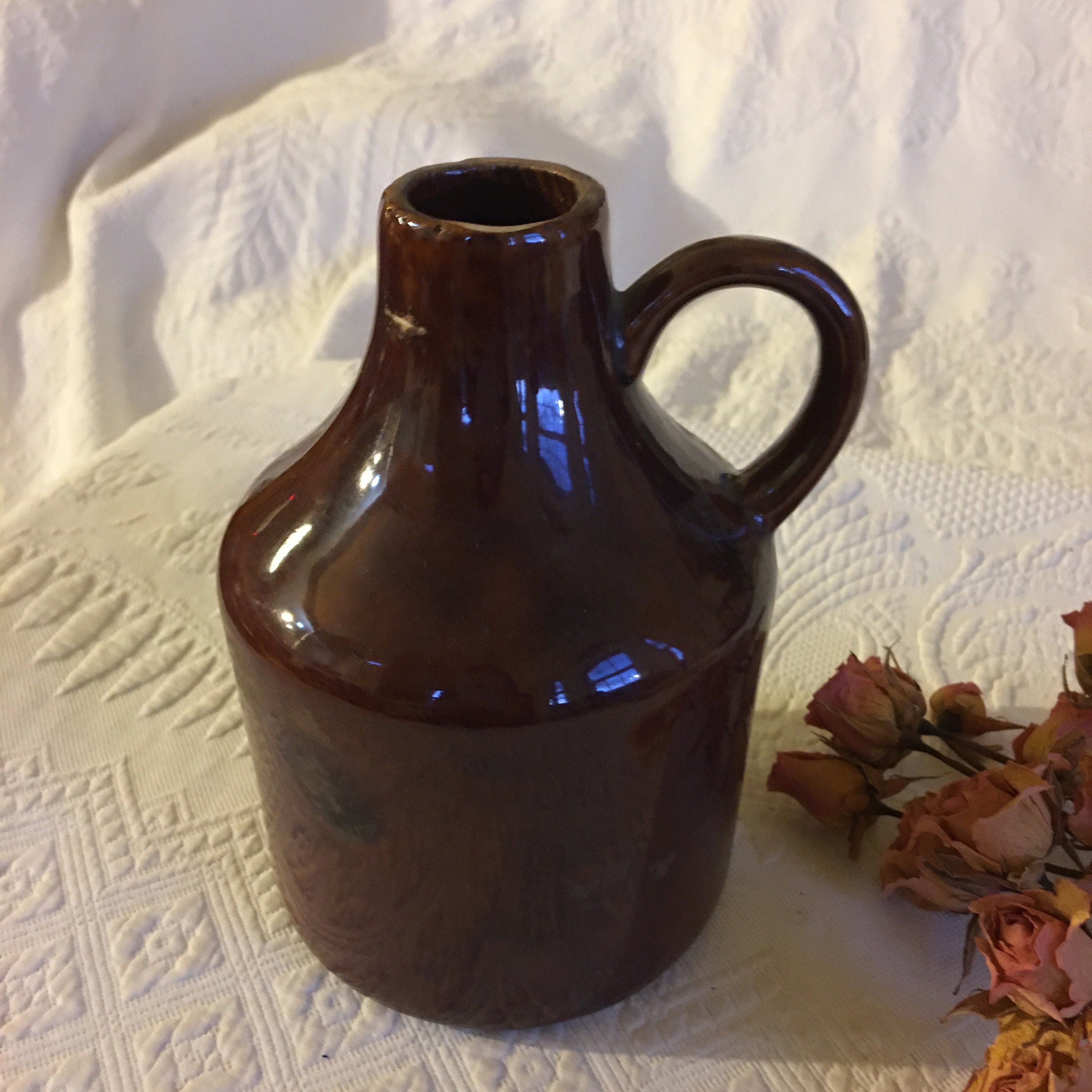Brown jug has been a staple in households and industries for centuries, serving a variety of purposes. From storing water to transporting goods, this humble container has played a significant role in shaping human history. Understanding the brown jug's origin, uses, and cultural impact provides valuable insight into its enduring legacy.
The brown jug is not just a simple container; it represents a blend of functionality and tradition. Its design has evolved over time, yet it remains one of the most practical tools in daily life. This article delves into the fascinating world of brown jugs, exploring their history, uses, and significance in modern society.
Whether you're a collector, a history enthusiast, or simply curious about everyday objects, this guide will provide you with a comprehensive understanding of the brown jug. Let's dive into the rich tapestry of its past and present applications.
Read also:Bernie Mac Show Cast Friends And Family Who Made The Comedy Iconic
Table of Contents
- The History of Brown Jugs
- How Brown Jugs Are Manufactured
- Common Uses of Brown Jugs
- Types of Brown Jugs
- Environmental Impact
- Cultural Significance
- Health and Safety Considerations
- Collectors' Market
- Future Trends
- Conclusion
The History of Brown Jugs
The origins of the brown jug can be traced back to ancient civilizations, where pottery was one of the earliest forms of craftsmanship. Clay vessels were used for storing water, grains, and other essential items. Over time, these vessels evolved into the brown jugs we know today, characterized by their distinct color and durability.
In the 18th and 19th centuries, brown jugs became popular in Europe and North America, particularly in the United States. They were used for transporting milk, wine, and other liquids. The dark color of the jug helped protect the contents from sunlight, preserving their quality.
Key Developments in Jug Manufacturing
Several key developments contributed to the widespread use of brown jugs:
- Introduction of industrial pottery techniques
- Development of glazing methods to enhance durability
- Increase in demand due to agricultural and industrial growth
According to the Smithsonian Institution, brown jugs were a symbol of practicality and reliability during the industrial revolution, making them indispensable in daily life.
How Brown Jugs Are Manufactured
The manufacturing process of brown jugs involves several steps, from sourcing raw materials to final production. Clay, the primary material, is sourced from quarries and processed to ensure consistency and quality.
Steps in Manufacturing
Here’s a breakdown of the manufacturing process:
Read also:Discover The Best Of Mb Of West Chester A Comprehensive Guide To The Community
- Mixing and kneading the clay to remove air bubbles
- Shaping the clay using molds or potter's wheels
- Drying the shaped clay to remove excess moisture
- Firing the clay in kilns at high temperatures
- Applying glaze for a smooth finish
Modern advancements in technology have streamlined this process, making it more efficient and cost-effective. According to the International Journal of Pottery Studies, advancements in kiln technology have significantly improved the quality and durability of brown jugs.
Common Uses of Brown Jugs
Brown jugs have a wide range of applications, both in traditional and modern settings. Their versatility makes them suitable for various purposes, from household use to industrial applications.
Household Uses
In households, brown jugs are commonly used for:
- Storing water and beverages
- Holding grains and dry goods
- Decorative purposes
Industrial Uses
In industrial settings, brown jugs are utilized for:
- Transporting chemicals and liquids
- Packaging goods for shipping
- Storing raw materials
Data from the Pottery Industry Association shows that brown jugs account for a significant portion of the pottery market, particularly in the packaging and storage sectors.
Types of Brown Jugs
Brown jugs come in various shapes, sizes, and designs, catering to different needs and preferences. Understanding the different types can help you choose the right jug for your specific requirements.
Classification by Size
Brown jugs are typically classified by size:
- Small jugs (under 1 liter)
- Medium jugs (1-5 liters)
- Large jugs (over 5 liters)
Classification by Material
They can also be categorized based on material:
- Ceramic
- Earthenware
- Stoneware
Each type offers unique advantages, such as durability, thermal resistance, and aesthetic appeal.
Environmental Impact
The environmental impact of brown jugs is a growing concern, especially with the increasing focus on sustainability. While they are made from natural materials, the production process can have significant environmental consequences.
Sustainable Practices
Efforts are being made to reduce the environmental footprint of brown jug production:
- Using recycled clay and glazes
- Implementing energy-efficient kilns
- Reducing waste during manufacturing
According to the Environmental Protection Agency, sustainable practices in pottery production can significantly reduce greenhouse gas emissions and promote eco-friendly products.
Cultural Significance
Brown jugs have played a crucial role in various cultures throughout history. They are often featured in art, literature, and folklore, symbolizing simplicity, reliability, and tradition.
Cultural References
Some notable cultural references include:
- Depictions in ancient pottery art
- Mentions in historical texts
- Use in traditional ceremonies
For example, brown jugs were commonly used in Native American rituals, symbolizing the connection between humans and nature.
Health and Safety Considerations
When using brown jugs, it's important to consider health and safety factors. Proper handling and maintenance are essential to ensure the safety of the contents and users.
Safety Tips
Here are some tips for safe usage:
- Use only food-grade glazes for storing edible items
- Avoid exposing jugs to extreme temperatures
- Regularly clean and sanitize jugs to prevent contamination
Research from the Food Safety Authority highlights the importance of using safe materials and practices when storing food and beverages in brown jugs.
Collectors' Market
Brown jugs have gained popularity among collectors, who appreciate their historical and cultural value. Antique brown jugs, in particular, are highly sought after, with some fetching high prices at auctions.
Factors Affecting Value
The value of a brown jug depends on several factors:
- Rarity and age
- Condition and preservation
- Historical significance
According to the Antiques and Collectibles Journal, rare brown jugs from the 19th century can command prices upwards of $1,000, depending on their condition and provenance.
Future Trends
The future of brown jugs looks promising, with advancements in technology and growing interest in sustainable products. Innovations in design and materials are expected to enhance their functionality and appeal.
Predicted Trends
Some predicted trends include:
- Increased use of eco-friendly materials
- Integration of smart technology for monitoring contents
- Customization options for personal and commercial use
Experts believe that these trends will make brown jugs even more relevant in the modern world, bridging the gap between tradition and innovation.
Conclusion
The brown jug has come a long way from its ancient origins to its modern-day applications. Its versatility, durability, and cultural significance make it a timeless object that continues to play a vital role in our lives. Whether used for practical purposes or as a collector's item, the brown jug remains an enduring symbol of human ingenuity.
We invite you to explore the world of brown jugs further and share your thoughts in the comments below. For more insightful articles on history, culture, and everyday objects, be sure to check out our other content. Together, let's celebrate the rich heritage of the brown jug and its lasting impact on society.

